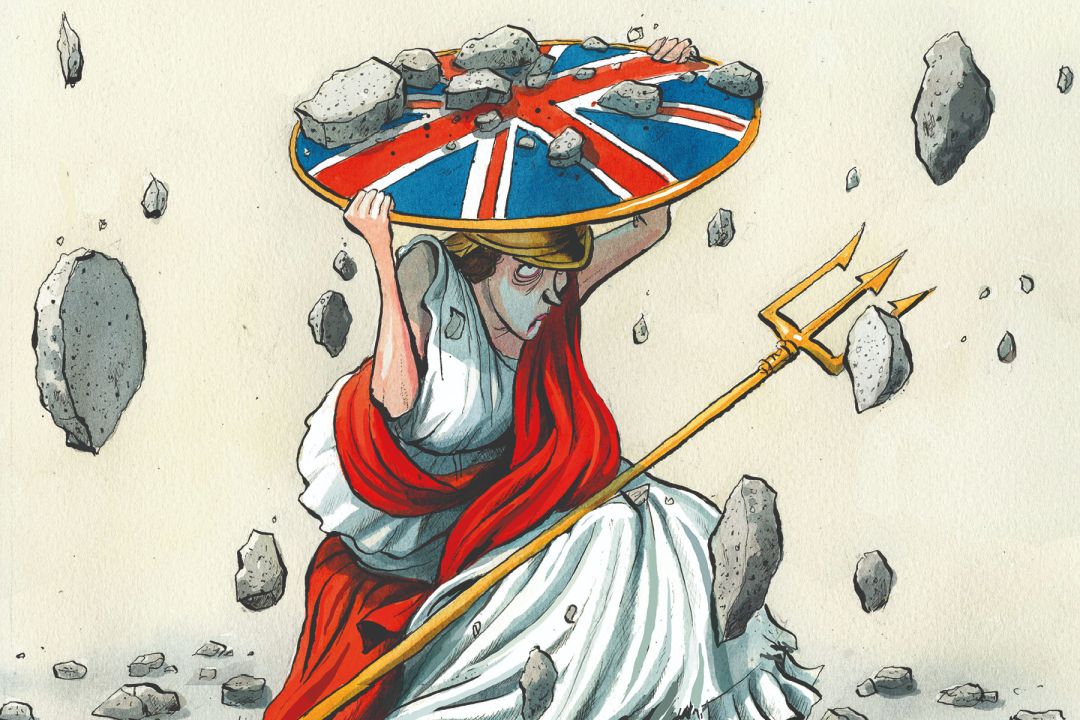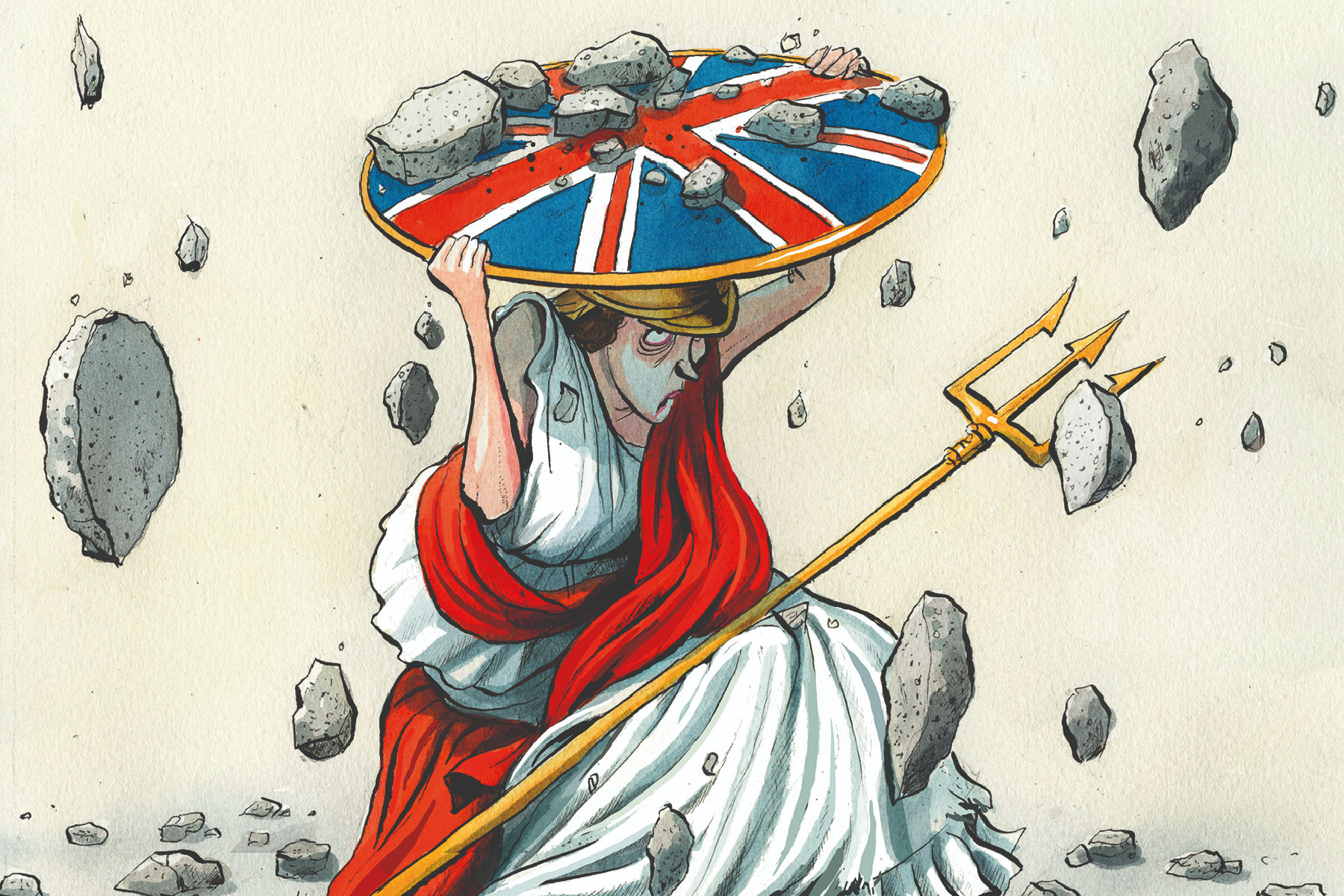
Sometimes when I go to bed, I think that if I were a young man I would emigrate,’ said James Callaghan, the then foreign secretary, in 1974.
He was referring to that decade’s chronic economic dysfunction, with its double-digit inflation, growing unemployment and stuttering growth. Two years later, as prime minister, he would have to go cap in hand to request a bailout from the International Monetary Fund. Two years after that came the Winter of Discontent.
Today’s economic picture may not be quite so bleak. Even so, the young see only intractable stagnation, cost-of-living pressures and visible decline. A recent poll suggested that more than a quarter of 18- to 30-year-olds had considered emigrating; the number of P85 forms requested by taxpayers wishing to go abroad more than doubled between 2022 and 2025. And Callaghan’s present-day successors show no signs of reversing this gloomy trend. Instead, more punishment is expected.
Last week, the National Institute of Economic and Social Research reported that Rachel Reeves must confront a £50 billion shortfall in the public finances ahead of her autumn Budget – more than double the black hole she complained the Tories had bequeathed her. Higher than expected public borrowing and weaker economic growth will almost certainly require her to raise taxes again. Whether this entails breaking Labour’s manifesto pledges on income tax, national insurance or VAT remains to be seen; suggestions already abound of another inheritance tax raid to follow last year’s squeeze on farmers.
Yet after her last Budget the Chancellor promised that there would be no further tax rises this parliament following the £40 billion increase she pushed through then. When called upon to justify a U-turn, Reeves might blame the global uncertainty generated by Donald Trump’s tariffs. But a more obvious culprit is the disastrous series of choices she made last October and her government’s impotence in the face of its backbenchers’ unwillingness to cut spending.
In recent weeks, it has been revealed that 164,000 jobs were lost during Labour’s first year in office – a fall in employment traceable back to the Chancellor’s increase in employers’ national insurance. Borrowing figures for June were the second-highest on record. The Office for National Statistics pinned this on the increasing cost of public services and the national debt.
As in the 1970s, voters must be brought to realise just how dire the situation is
Reeves is stuck in a doom loop. Her tax rises stifle growth; her MPs refuse to cut public spending; taxes must rise. The tax burden is already at a postwar high. The national debt is approaching 100 per cent of GDP. Spending on servicing debt interest is now greater than on defence.
To make matters more painful, even as Labour moves to raise taxes yet again, it continues to waste more and more billions abroad. The humiliating Chagos deal, which the government had to admit this week will cost taxpayers a further £35 billion, is its own fiscal black hole.
If at some point the markets panic, this government will confront a crisis similar to that of the 1970s. Labour MPs may not be interested in austerity, but austerity is interested in them.
Every Labour government except Tony Blair’s has endured some form of economic emergency, from Ramsay MacDonald’s tussle with the gold standard, via Clement Attlee and Harold Wilson’s respective devaluations, to Gordon Brown and the global financial crisis. Yet even if the bond markets force Keir Starmer’s party into living within its means, few should doubt that a government unable to stay the course on minor welfare cuts will turn the spending taps back on as soon as the situation stabilises.
Neither the Conservatives nor Reform UK are well-placed to criticise. It was Tory profligacy, combined with the pandemic’s exigencies, that pushed spending and taxes to their current highs. Last year, Rishi Sunak promised to take millions of pensioners out of tax – showing that his party, in extremis, preferred appeasing its ageing base to balancing the books.
Meanwhile, Nigel Farage has recently given his best impression of a drunken sailor, making more than £50 billion in spending commitments, including his back-of-a-fag-packet plan to nationalise half the water industry.
Both of the major parties are trapped between their own unwillingness to court short-term unpopularity and an electorate that is not yet ready to accept that spending cannot continue on its current unsustainable course. As in the 1970s, voters must be brought to realise just how dire the situation is – and elect a government with the vision, mandate and will to make hard choices.
In that spirit, Kemi Badenoch’s more enthusiastic promoters have been touting her as a second Margaret Thatcher. She has said that she aspires to be Britain’s Javier Milei – the chainsaw-wielding Argentinian president delivering a successful anti-inflationary and cost-cutting agenda.
But before Milei’s election, his country had endured decades of repeated defaults and three-figure inflation. Making Britain solvent should not require the same hardships. And if it does, who could blame the young for taking themselves elsewhere? Will the last twentysomething to leave Britain please turn out the lights?








Comments